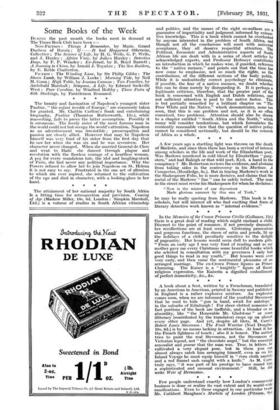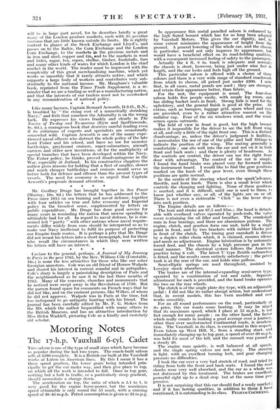Few people understand exactly how London's commercial business is done
or realize its vast extent and its world-wide ramifications. Even to those engaged in one particular trade Mr. Cuthbert Maugham's Markets of London (Pitmans 6!.)
will be in large part novel, for he describes briefly a great many of the London produce markets, each with its peculiar customs that are little known outside its limits. He is rightly content to glance at the Stock Exchange and Lloyd's, and passes on to the Baltic, the Corn Exchange and the London Corn Exchange, to the markets in the precious metals and in iron and steel, copper and tin, and to the markets in wool and hides, sugar, tea, copra, shellac, timber, foodstuffs, furs and many other kinds of wares for which London is the chief market in the world. The reader must be impressed with the complexity of this great merchandising machine, which yet works so smoothly that it rarely attracts notice, and which supports a large body of workers and contributes very sub- stantially to the national income. Mr. Maugham's valuable
book, reprinted from the Times Trade Supplement, is a re- minder that we are a trading as well as a manufacturing nation, and that the interests of our traders must not be overlooked in any reconsideration of national policy.












































 Previous page
Previous page